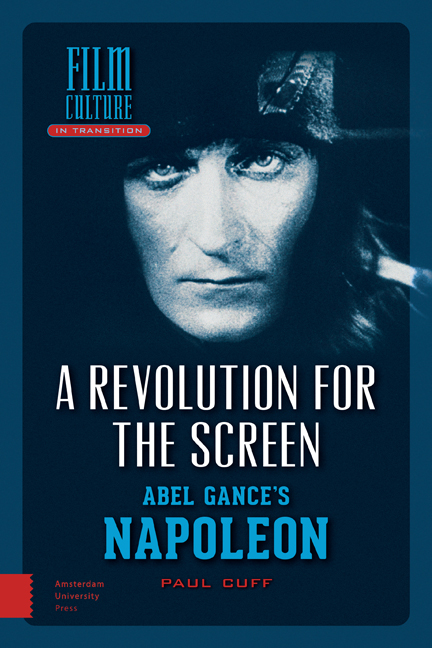Book contents
- Frontmatter
- Dedication
- Contents
- List of Illustrations
- Note on Formatting
- Acknowledgements
- Foreword
- Preface: Critical perspective
- 1 Napoleonic Ambition and Historical Imagination
- 2 Shaping Expectations: The Young Napoléon Bonaparte
- 3 Civilization and Savagery: Visions of the French Revolution
- 4 Mortal Gods: Voices of Power and of Providence
- 5 The Dark Light of Napoleonic Cinema
- 6 A View from the Margins of History
- 7 Melodrama and the Formulations of Family
- 8 Worlds in Transition: Class, consumption, Corruption
- 9 Death and Transfiguration
- Conclusion: The Case for Enthusiasm
- Filmography and Bibliography
- Index
- Film Culture in Transition
6 - A View from the Margins of History
Published online by Cambridge University Press: 10 December 2020
- Frontmatter
- Dedication
- Contents
- List of Illustrations
- Note on Formatting
- Acknowledgements
- Foreword
- Preface: Critical perspective
- 1 Napoleonic Ambition and Historical Imagination
- 2 Shaping Expectations: The Young Napoléon Bonaparte
- 3 Civilization and Savagery: Visions of the French Revolution
- 4 Mortal Gods: Voices of Power and of Providence
- 5 The Dark Light of Napoleonic Cinema
- 6 A View from the Margins of History
- 7 Melodrama and the Formulations of Family
- 8 Worlds in Transition: Class, consumption, Corruption
- 9 Death and Transfiguration
- Conclusion: The Case for Enthusiasm
- Filmography and Bibliography
- Index
- Film Culture in Transition
Summary
Histories are as perfect as the Historian is wise, and is gifted with an eye and a soul! […] The Art of History [is to] distinguish well what does still reach to the surface, and is alive and frondent for us; and what reaches no longer to the surface, but moulders safe underground, never to send forth leaves or fruit for mankind any more: of the former we shall rejoice to hear; to hear of the latter will be an affliction to us; of the latter only Pedants and Dullards, and disastrous malefactors to the world, will find good to speak. By wise memory and by wise oblivion: it lies all there! Without oblivion, there is no remembrance possible. When both oblivion and memory are wise, when the general soul of man is clear, melodious, true, there may come a modern Iliad as memorial of the Past (Carlyle 1845: I/9).
Introduction
Gance's desire for factual credence is highly visible in NAPOLÉON, but his numerous historical citations have often been seen as ‘a misguided attempt to invoke the mantle of authority’ (Abel 1984: 432). Indeed, Gance later thought his fundamental ‘error’ in NAPOLÉON was ‘the abuse of documentation’: ‘I lost popular appeal in trying to be accurate and searching for authentic detail. The power of LA ROUE and J’ACCUSE resides in the absence of the authenticated’ (1928d). Yet these ‘unauthenticated’ elements of NAPOLÉON were often the first targets of those wishing to reduce the film's immense length. This was particularly the case with the fictional Fleuri family: the scenes involving Tristan, Violine, and Marcellin have suffered the most from deliberate excision and derisive critical consideration. After attending an early preview screening, Jean Arroy urged Gance to cut the majority of material involving the Fleuris (Brownlow [1983] 2004: 135). Gance followed this advice in preparing his film for the Opéra but later reinstated their scenes in the longer Apollo prints. Given the choice between these two divergent editions (and numerous other incomplete prints), modern restorers have often disregarded the Fleuris during the process of reconstruction.
Despite the best efforts of editors and Bonaparte's stubborn blindness to them, the Fleuris remain embedded in the textual substance of NAPOLÉON – perennially struggling to make their presence known.
- Type
- Chapter
- Information
- A Revolution for the ScreenAbel Gance's Napoleon, pp. 159 - 178Publisher: Amsterdam University PressPrint publication year: 2015



